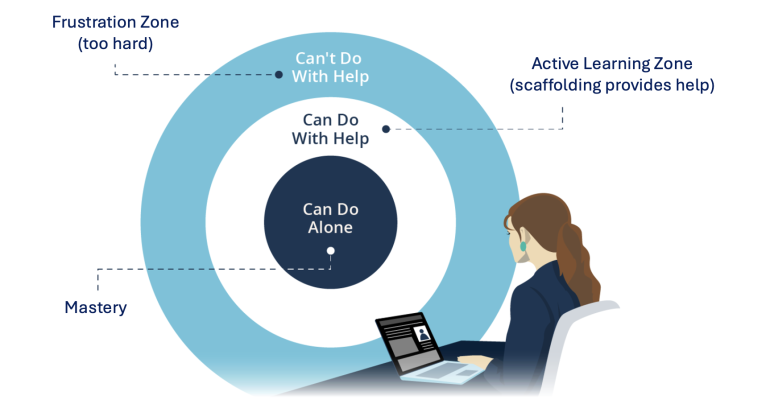Why Struggle Matters: Active Learning, AI and the Future of Student Success
14/09/2025 2026-01-28 11:32Why Struggle Matters: Active Learning, AI and the Future of Student Success
As we begin a new academic year at Euro University of Bahrain, our focus is clear: students must not just attend classes—they must live them as learners.
Simon Cleary, our Academic Director, recently reminded faculty that the classroom is not the place for passive listening. The real work happens when students apply, debate and use knowledge—while the preparation, the reading and the content acquisition take place through our Virtual Learning Environment and the University of London’s world-class resources.
This is more than a method. It’s a philosophy.
Why Active Learning Matters
Active learning turns a class from a lecture into a workshop. Instead of information flowing in one direction, students engage in dialogue, solve problems and test ideas against each other. The shift is simple but profound: if I lecture, you may receive information. But if we work together through case studies, peer tasks and structured debate you actually learn. This matters because active learners retain more, think more critically and graduate not just with knowledge, but with the capacity to use it.
Scaffolding the Learning Journey
Active learning does not mean leaving students unsupported. On the contrary, scaffolding is central to our approach. Just as a structure rises step by step, learning must be built through carefully designed stages—guiding students from dependence to independence.
Through scaffolding, our faculty ensure students are stretched but not stranded. Each activity is designed to build confidence and competence, helping learners to take increasing ownership of their progress.
The Role of Metacognition
Alongside this, we are introducing our faculty to the importance of metacognition—the art of learning about learning. When students reflect not only on what they know, but on how they know it, they become more self-aware, adaptable and resilient. They begin to recognise which strategies work for them and how to transfer those skills across contexts.
This is where education moves beyond content and becomes transformational.
AI and the Temptation of Easy Answers
Here, AI brings both promise and risk. Too often, AI tools provide the answer too quickly. But learning doesn’t happen at the moment of receiving the answer—it happens in the struggle toward it.
What we need from AI is not a shortcut but a tutor: a partner that provides hints, scaffolding and guiding questions, enabling students to wrestle with a problem until they arrive at the solution themselves. That is how understanding is built. At EUB, we are determined to use AI in ways that support the learning journey, not bypass it.
From Classrooms to Career
Why invest so much in this approach? Because the outcomes are real. Employers consistently tell us they need graduates who can collaborate, think critically, adapt quickly and communicate clearly.
These are precisely the skills that active learning, scaffolding and metacognitive reflection develop. When our graduates leave EUB, they don’t just carry a globally recognised University of London degree—they carry the mindset and habits of lifelong learners. And that’s what shapes graduate destinations, career opportunities and long-term impact.
Looking Ahead
We believe students deserve more than a transactional education. They deserve a formative one: an education that challenges, equips and empowers them to thrive.
As we welcome our new cohort, I am excited to see active learning embedded in our classrooms, not as a slogan but as a lived reality. Because when students are engaged as learners—questioning, applying, reflecting—the future isn’t something they wait for. It’s something they are already creating.










